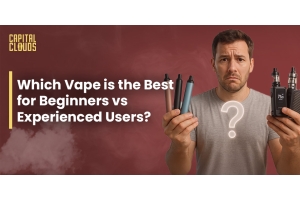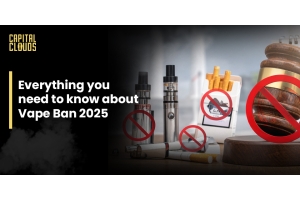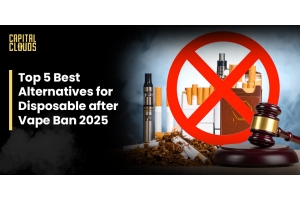The Tobacco and Vapes Bill: What’s in It – and Why It Might Be More Dangerous Than It Seems

The UK government's Tobacco and Vapes Bill aims to usher in a smoke-free generation by implementing stringent regulations on tobacco and vaping products. While the initiative targets reducing youth nicotine addiction and environmental concerns, critics argue it may inadvertently hinder smoking cessation efforts and fuel black market activities.
Key Provisions of the Bill
- Generational Smoking Ban
The bill proposes a progressive ban on tobacco sales, making it illegal for anyone born on or after January 1, 2009, to purchase tobacco products. This measure aims to phase out smoking over time, creating a smoke-free generation.
- Vape Flavour and Packaging Restrictions
Ministers will have the authority to regulate vape flavours, packaging, and display to reduce their appeal to minors. This includes the potential for plain packaging and limitations on flavour offerings.
- Advertising and Sponsorship Ban
All forms of advertising and sponsorship for vapes and nicotine products will be prohibited, mirroring existing restrictions on tobacco advertising.
- Expanded Smoke-Free Zones
The bill allows for the expansion of smoke-free areas to certain outdoor public places, such as playgrounds, school entrances, and hospital grounds, to protect children and vulnerable populations from secondhand smoke.
- Retail Licensing Scheme
A new licensing system will be introduced for retailers selling tobacco and vaping products, aiming to curb illicit sales and ensure compliance with regulations.
Concerns Raised by Health Advocates and Industry Experts
- Impact on Smoking Cessation Efforts
The UK Vaping Industry Association (UKVIA) has expressed concerns that the bill's restrictions could deter smokers from transitioning to less harmful alternatives like vaping. They highlight the absence of a comprehensive health impact assessment, warning of potential setbacks in public health progress. - Potential Rise in Black Market Activities
Critics argue that stringent regulations may lead to a surge in black market activities, undermining the bill's objectives. Unregulated products pose greater health risks and are more accessible to minors. - Environmental Considerations
The ban on disposable vapes addresses environmental concerns, as millions of single-use vapes are discarded weekly, contributing to waste and pollution. However, studies suggest that users are already transitioning to refillable and reusable e-cigarette devices following the ban's announcement.
Balancing Public Health Goals
While the bill's intent to protect youth and promote public health is commendable, it's essential to consider the potential unintended consequences. Striking a balance between regulation and accessibility to smoking cessation tools is vital to ensure the bill achieves its desired outcomes without adverse effects.
Conclusion
The Tobacco and Vapes Bill represents a significant shift in the UK's approach to tobacco and nicotine regulation. As the bill progresses, ongoing dialogue among policymakers, health experts, and industry stakeholders will be crucial to navigate its complexities and optimize its impact on public health.
 Help Center
Help Center




